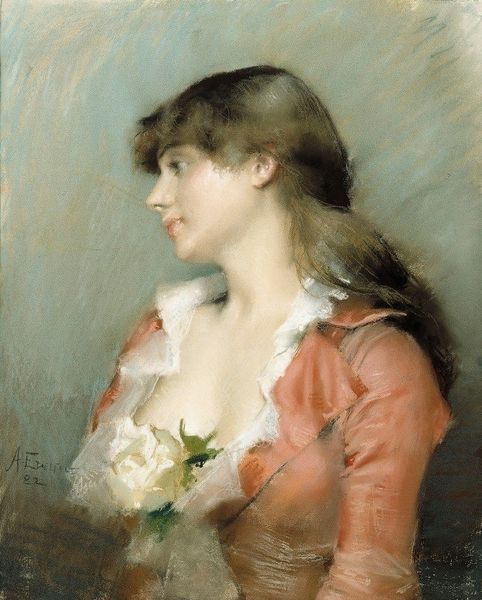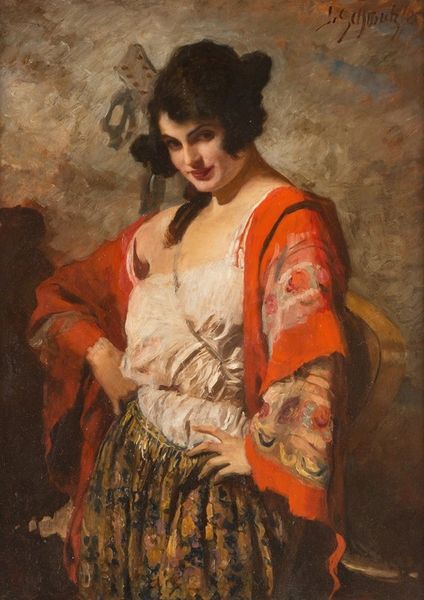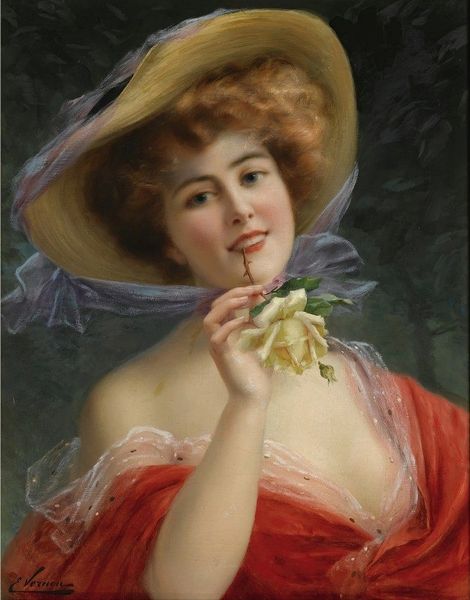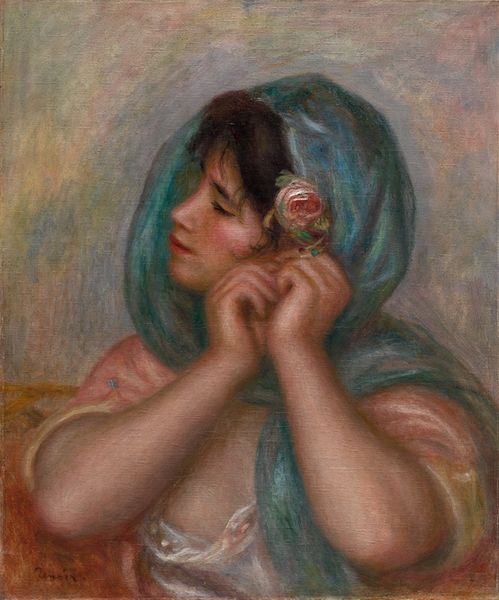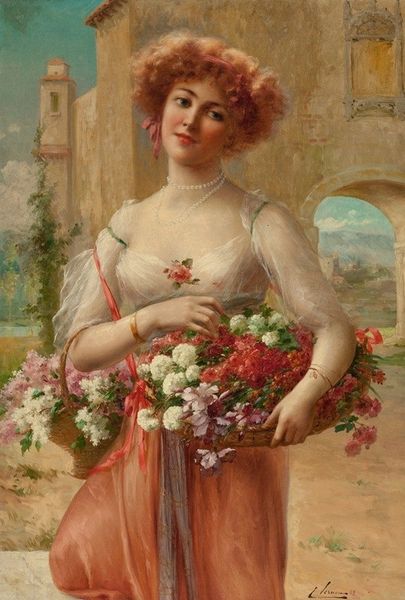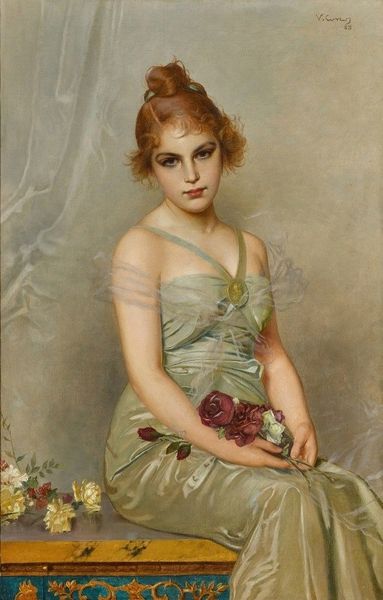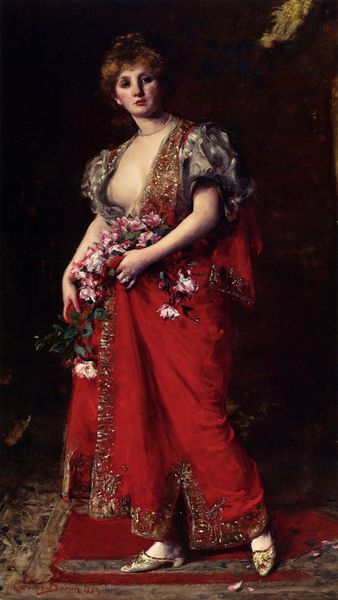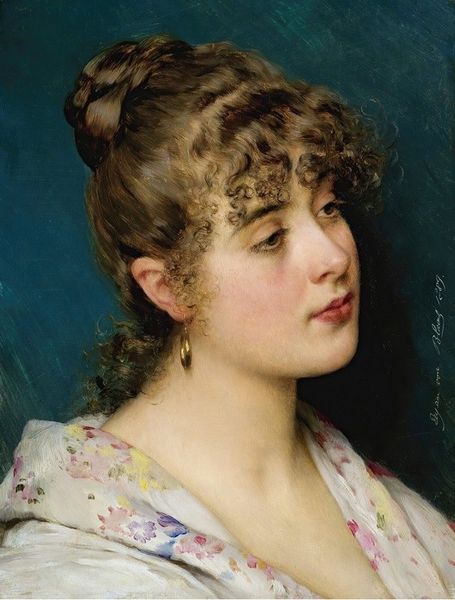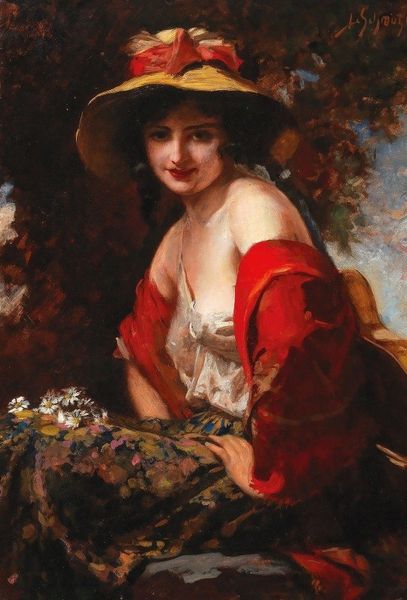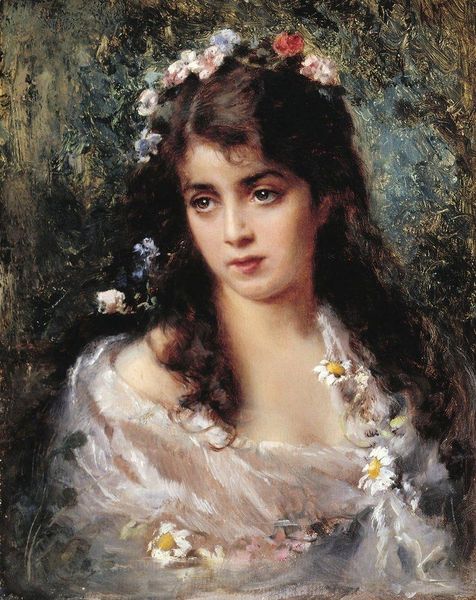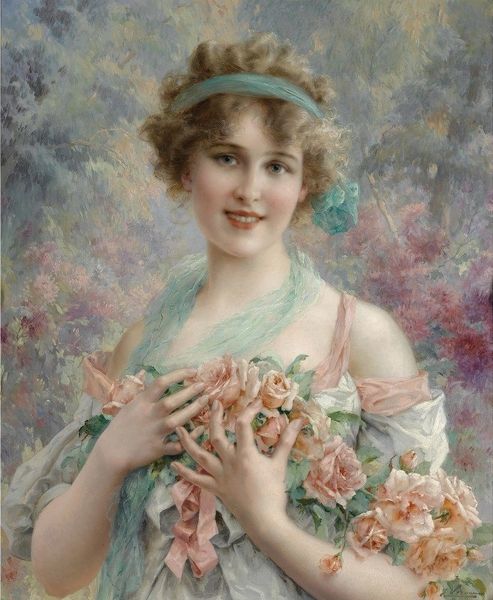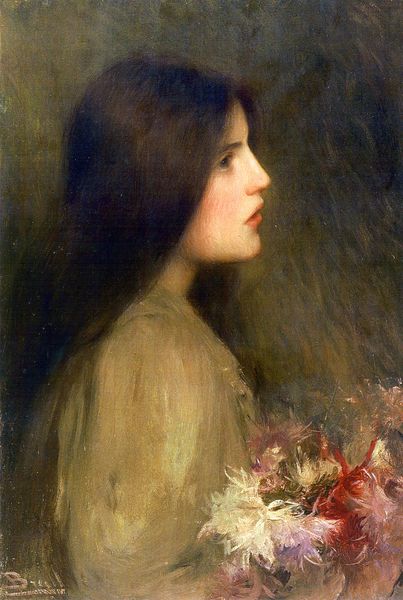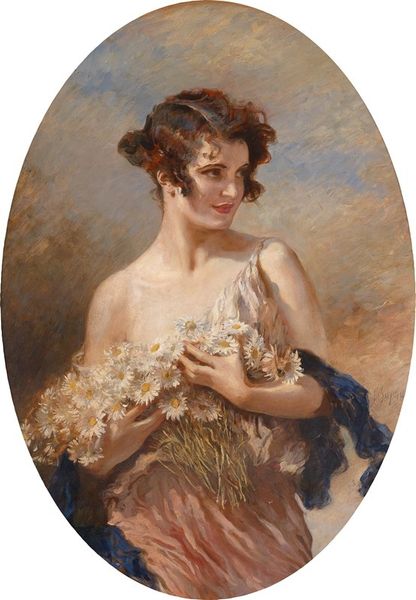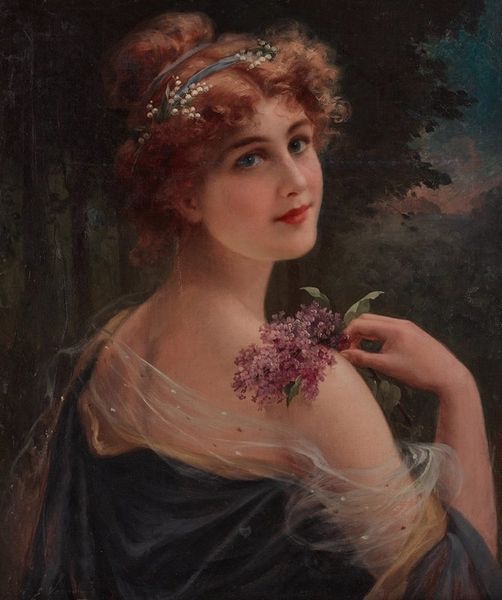
painting, oil-paint
#
portrait
#
figurative
#
painting
#
impressionism
#
oil-paint
#
figuration
#
oil painting
#
intimism
#
romanticism
#
genre-painting
Copyright: Public Domain: Artvee
Curator: Upon first glance, there’s a delicate and almost ethereal quality to this piece, isn’t there? The light is incredibly soft. Editor: Absolutely. I’m immediately drawn to the contrast. The loose robe suggests vulnerability, juxtaposed against the conventional symbol of roses. It’s an intriguing play on public versus private female experience. Curator: Delphin Enjolras painted "Portrait of a Lady in a Negligee, Holding Roses" during the Impressionist movement. It’s rendered in oil, and presents an intimate glimpse of a woman. Notice the fine details, the red bow tying up her beautiful brown hair, and roses that she gracefully holds. Editor: And it is this 'intimate glimpse' that perhaps bears closer scrutiny. What's being suggested with that negligee, and who is its implied viewer? The male gaze immediately springs to mind. Enjolras was, after all, part of a society that objectified women. Curator: Undoubtedly. But I also read symbols differently; roses have symbolized love, passion, and beauty for centuries, across different cultures. They echo not just romantic ideals, but also notions of fleeting beauty and mortality. This representation is a bit complex, not merely the objectification by "the male gaze" that you mention, which in fact becomes secondary. Editor: I think we cannot dismiss this perspective altogether, and must consider those readings through feminist critique; the cultural baggage weighs heavily on an artwork. To not confront these readings risks perpetuating blind spots that, for example, excuse art predicated on inequality. Curator: True. But even with all these considerations, Enjolras evokes a mood that is soft and pensive, and succeeds in that regard at establishing visual memory, despite, as you observe, the undeniable objectification in plain sight. The cultural memory of women as symbols rather than individuals has deep roots that linger even today. Editor: Agreed, the layers of historical context and cultural meaning truly give it power. It is this ongoing dialogue about representation that allows us to critically engage with it today, even beyond Enjolras' original intent. Curator: Ultimately, in my eyes, we can admire the beauty, acknowledge historical constraints, and seek meaningful reflections. Editor: A much-needed sentiment, that allows for complex conversation. Thank you!
Comments
No comments
Be the first to comment and join the conversation on the ultimate creative platform.
